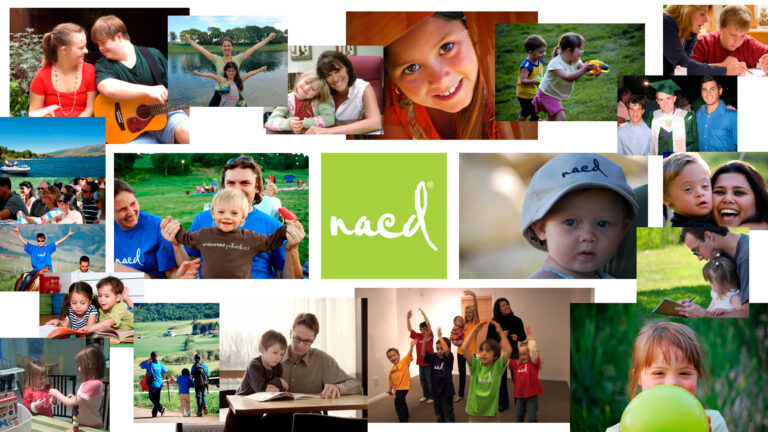How to School Your Child
by Ellen Doman
 I am going to do something that may initially seem odd to you. I am going to separate the concept of educating from the concept of schooling because they are not the same thing. Educating your child is providing your child with what he or she needs to learn to think, process and filter information, understand ideas, form new ideas and communicate. What works in terms of strategies to educate your child changes as your child changes. NACD is helping to change children and adults, of course. As these changes happen, how the individual is educated changes as well both in terms of what is used as input and what the individual can and will do to communicate what they have understood. This is an ever-changing process that moves forward. Strategies are temporary. Methodologies are temporary as they are dependent on processing issues and working memory capacity. As a result, we could not possibly decide what the right thing to do with a student is in terms of educating them that would be appropriate for an entire year.
I am going to do something that may initially seem odd to you. I am going to separate the concept of educating from the concept of schooling because they are not the same thing. Educating your child is providing your child with what he or she needs to learn to think, process and filter information, understand ideas, form new ideas and communicate. What works in terms of strategies to educate your child changes as your child changes. NACD is helping to change children and adults, of course. As these changes happen, how the individual is educated changes as well both in terms of what is used as input and what the individual can and will do to communicate what they have understood. This is an ever-changing process that moves forward. Strategies are temporary. Methodologies are temporary as they are dependent on processing issues and working memory capacity. As a result, we could not possibly decide what the right thing to do with a student is in terms of educating them that would be appropriate for an entire year.
For those of you with children on program, and for those of you who are adults on program, you are aware that there are changes in function day to day, month to month, and quarter to quarter. You are even becoming aware of changing function throughout the day. For an individual to become educated in the most productive and efficient way, we need to take into account the changes in attention and processing during each day, the changes in processing levels from week to week and month to month, and the changes in working memory capacity from quarter to quarter.
Why would we teach to an inattentive child? Why would we try to teach information that is over an individual’s processing level or input beyond the individual’s working memory capacity? That would be a waste of time and frustrating to the child or the adult. If I seek to educate one individual, then I will use everything I know about that child or adult to maximize the use of their current processing level and working memory capacity. I will maximize the relevance of the information to their life and experience, and will progress at a rate that is correct for them at any given point in time, understanding that this rate is variable.
Schooling is a model that implies a structure in which the individual is to fit. Here is the curriculum, the schedule, the rules and you, the student, will be fit into this structure. We can slow things down or speed things up somewhat, but the structure is pre-existing. The individual is fit into it. This is true of brick and mortar schools, homeschools using packaged curriculum, and cyberschools. Then by definition there is inefficiency, lost time, frustration, and periods of inattention. In some cases, time wasted exceeds time making progress. In some cases, the child is inattentive for more minutes and hours than they are attentive. Plans are made for an entire year using materials that were developed with no knowledge of the learner at all.
Your child or you as a young adult on program have a right to become educated, which means able to think, able to learn, able to problem solve, sort through and retain relevant information, learn to prioritize, generalize, conceptualize, and interact with the world around you. There is no publisher that knows your child or you, no special book at a bookstore or convention, no magic curriculum that will produce the very best results for you or your child. Everything must be tailored to work at a specific time, presented in a specific way for a specific duration to make the most of the learner’s potential.
My advice is to take each quarter and make a plan based on truly current levels of processing and interests. Avoid being overwhelmed by huge quantities of information to be thrown toward your child by the arbitrary end of the arbitrary school year. Work to produce better cognitive function. Work to produce a thinker who loves to learn and is curious about what is going on around them. Work to produce a communicator AFTER you have produced a thinker. That way your child or you as an adult on program will have strong enough processing and enough experience with other people’s communication to be able to organize thoughts and share them.
We are on a journey with our children and with ourselves, not a race. Let’s produce quality of thought, depth of thinking, and interest in the world. Let’s produce individuals with the cognitive strengths to create solutions. Let’s produce individuals who enjoy the tasks and challenges and embrace work. Let’s not only give our children a voice but also something meaningful to say. Let’s educate them and ourselves.







